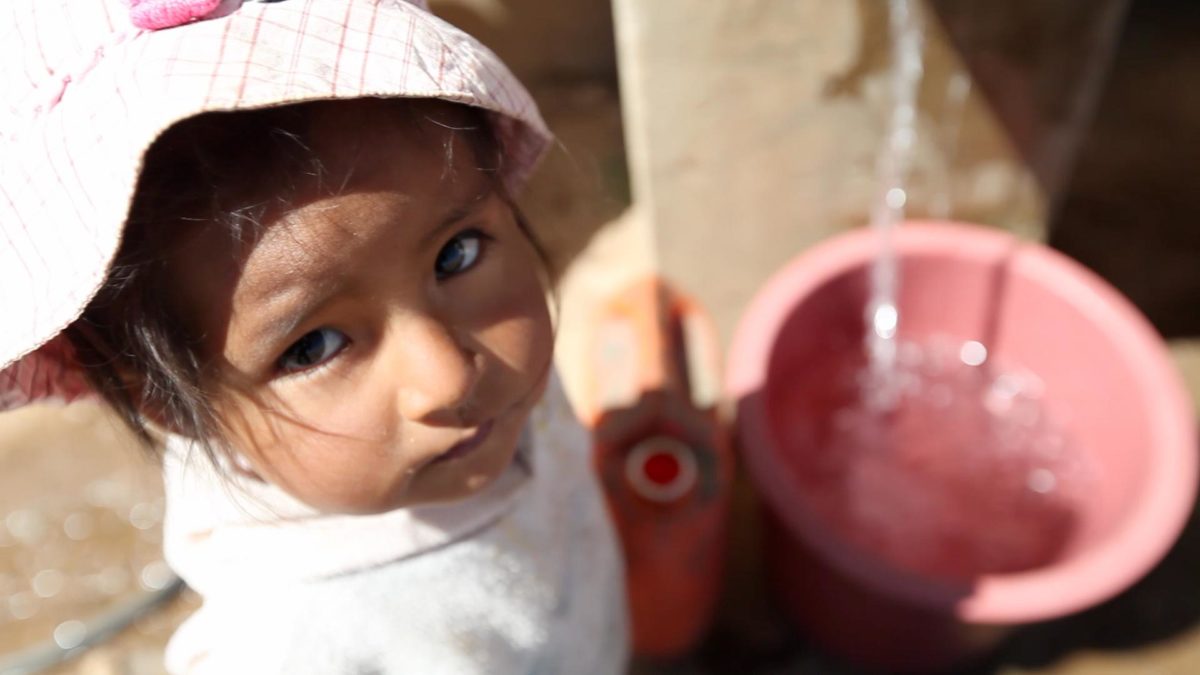Nutrition & WASH: A Recipe for Success
In the lead-up to World Water Week, WaterAid, SHARE (Sanitation and Hygiene Applied Research for Equity) and Action Against Hunger launched a new report, “The recipe for success,” in which they discuss a key ingredient for fighting global malnutrition – WASH (water, sanitation and hygiene). The report highlights that 50% of undernutrition in children under five is associated with repeated diarrhea and infections resulting from poor WASH conditions. Additionally, poor sanitation is listed as the second leading cause of stunting worldwide.
Given the report’s findings, it is clear that poor WASH conditions can undermine access to good nutrition. A better understanding of how WASH and nutrition are linked prove critical in the fight against malnutrition.
The findings of this report are playing out around the world, but one acute example is taking place in Yemen right now. More than 60 percent of the Yemeni population faces hunger and starvation, and UNICEF estimates that the country is currently home to the worst outbreak of cholera in the world. The outbreak affects nearly all of Yemen and there have been nearly 500,000 cases of suspected cholera and about 2,000 associated deaths reported to date. Unsurprisingly, the UN Office for Coordination of Humanitarian Affairs reports that, “Malnourished children and pregnant women are at greatest risk of death as they face the “triple threat” of conflict, famine and cholera.”
Poor WASH systems and a lack of access to good nutrition, mixed with conflict, is undermining the resilience of the already vulnerable Yemeni population. This makes it harder for women and children to recover from extreme bouts of diarrhea caused by cholera. The situation is so dire that at this moment, urgent humanitarian assistance and an end to conflict in the region is needed to save lives.
The children that survive these circumstances are still at risk of suffering the long-term consequences of chronic malnutrition and stunted growth. The potential for children to attain optimal growth in life lies within the first 1,000 days between when a woman becomes pregnant and her child’s second birthday. We must ensure that even in the face of crises this period in life is protected.
This World Water Week (Aug 27 – Sept 1) is a time to refocus on the needs around water and sanitation but hopefully also a time to make policymakers aware that WASH and nutrition are connected and in-turn, so are the solutions. Just as malnutrition and poor WASH mutually reinforce bad health outcomes, promotion of good nutrition and WASH policies that work together result in healthier and more nourished communities. This means ensuring that WASH and nutrition are included in each other’s policies and plans, implementation is consistent and institutional structures are strengthened. WASH and nutrition programming that work together to mitigate the malnutrition crisis worldwide must be a priority.
Mwandwe Chileshe is a Global Program Associate at 1,000 Days and a Global Health Corps fellow. In her role at 1,000 Days, Mwandwe supports the organization’s efforts to mobilize greater resources for global nutrition by supporting the management of ICAN and participating in international coalitions. She previously led the Zambia Civil Society Scaling up Nutrition Alliance, a network that works to improve the status of nutrition in Zambia.

